If that title doesn’t draw people in, then I don’t know how to please you folks!
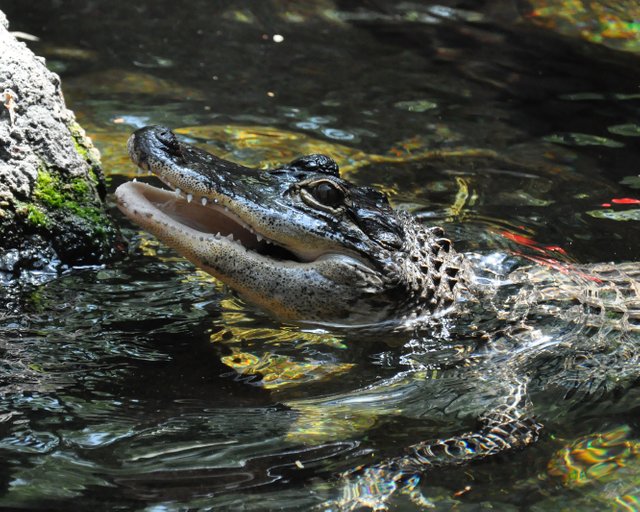
As I’ve said in previous posts, I’ve been working with reptiles and amphibians in a professional museum setting for about four years now. In 2014, I was promoted to the full-time Herpetologist position. And yeah, the job came with a few perks and benefits, but nothing really changed as far as my duties and day-to-day activities were concerned.
Except for one little thing.
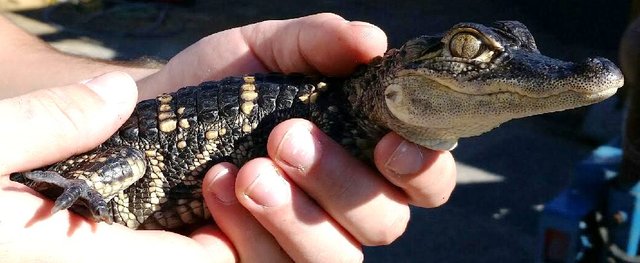
I was told I would be in charge of training our new American Alligator. This small female was about a year old, and had been rescued by animal services after a concerned citizen saw an alligator wandering through her yard in Virginia Beach. It was determined that the small gator was an illegal pet that had been released, as alligators do not range that far north and she was still to young to be away from her mother (alligators will watch over their young for up to two years!). Finding no alternative, the young alligator was brought to the museum to be an education program animal. She was named Stella, though I will not go into the long back-story of that name.
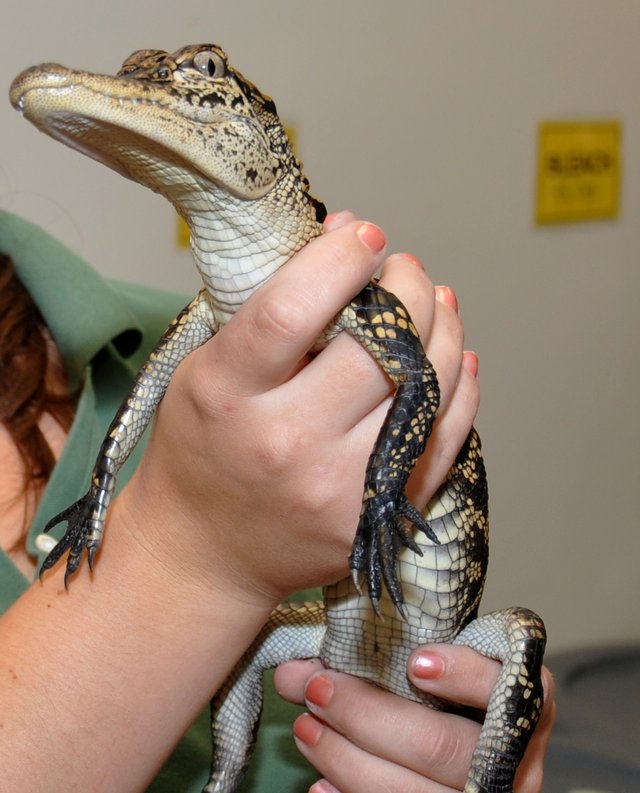
Don't be fooled by the cuteness. There is a complete monster behind the smile.
Despite her small size, Stella was a little brat from the get-go. Her previous owners had done just a phenomenal job of making her into an aggressive alligator with a huge attitude (probably why they dumped her). She was quick to determine that her new enclosure was her territory; that she was queen of the pond and anything that entered her space had to die. She would hiss loudly at anything or anyone who approached, leaping against the side at those who were brave enough to look over the edge of her enclosure. I was to be solely in charge of her training (having multiple trainers can confuse some animals so we typically only have one trainer for each individual), so it was a daunting task from the start.
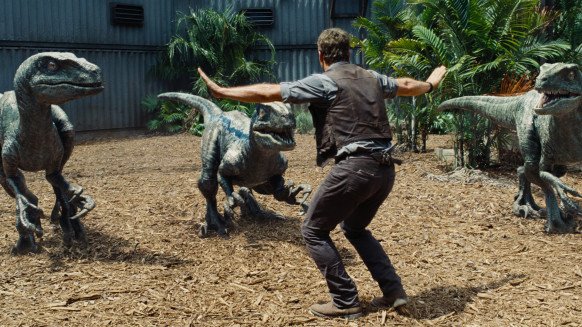
I think I can relate to Christ Pratt just a little bit.
Stella’s progress began slowly. American alligators are very food-motivated animals, so I used that trait to begin shaping her behavior. When she was calm, floating in the water and giving me space, I would reward her with treats, reinforcing her good habits. When she hissed, aggressively approached, or leapt from the water, I would simply leave and try to feed her again later if she had calmed down. It didn’t take long (only a couple weeks, tops) for Stella to realize that good behavior was the key to getting her food, and she began calming down during her feeding sessions.
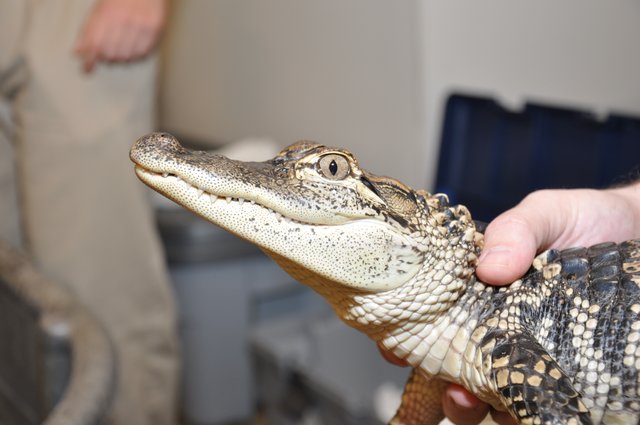
The next step to her training was introducing the target pole. Many highly intelligent animals (whales, dolphins, elephants, etc.) are trained by means of target training: a target (generally a ball on the end of a stick) is put somewhere near an animal, and when the animal approaches the target, they are rewarded. This may not seem especially useful until you look at the bigger picture: a full sized alligator can be over 15 feet long, and it is much easier to direct an animal of that size with a target, rather than physically moving them. Unfortunately, Stella’s initial reaction to the target pole was rage.
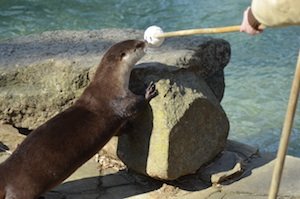
But Stella, like all alligators, is extremely intelligent. Though her first few interactions with the target ended when she attacked it, she began to notice something: the target only appeared when food was around, and at no other time. It may seem odd to personify a gator, and claim that level of realization, but her body language spoke volumes. As soon as she saw the target, she began behaving differently, knowing there was food nearby. I would place her food next to the target, and when she grabbed the food, I would click a training clicker as a bridge. A “bridge” is a signal to an animal that they have completed a task and will be rewarded. This went on for several weeks; Stella would approach her food (and the target), and I would bridge her just before she got to the target. When she was calmly approaching the target, I was ready to move on to the next step of her training.
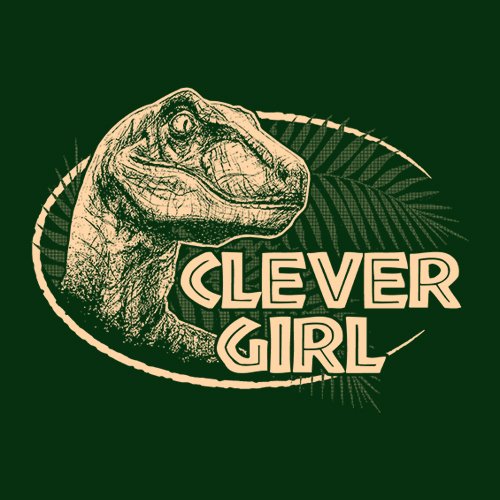
I began offering Stella the target with no food in sight. She immediately went to the target (having now firmly associated the target with food), and I immediately rewarded her behavior. I began moving the target around her enclosure, and each time she would follow it, looking for food. I also had to change up how she was rewarded. Sometimes when she approached the target, I would offer her a treat to reinforce the success, other times there was no treat offered. I needed Stella to be able to follow the target when food wasn’t available, such as for medical procedures or emergency situations. This didn’t seem to phase her at all; Stella would approach the target with gusto every time, whether food was available or not. When her target was replaced with a ball for enrichment exercises, she regarded it as though it had always been her target.
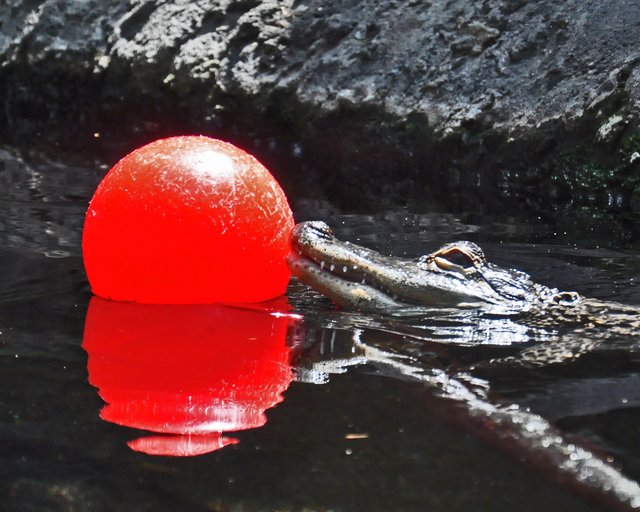
Though I make her training sound like a resounding success, Stella still is (and will be, for quite a while) a work in progress. Despite her incredible progress, she will always be a wild animal and can be unpredictable at times. She has her good days and her…less good days. While she is generally cooperative and easy to target, she is sometimes reminiscent of the little twerp we took in 2 years ago. Added challenges have created speed bumps in her training; Stella now lives on exhibit in full view of hundreds of visitors, alongside her new exhibit-mate, an eastern snapping turtle. In spite of all this, Stella continues to overall excel in her training and has a bright future ahead of her.

Thank you all for bearing along with me for this rather long post (and this is the super-abridged version)! I could probably write a whole novel on my experiences training this alligator (hmmm, not a half-bad idea).
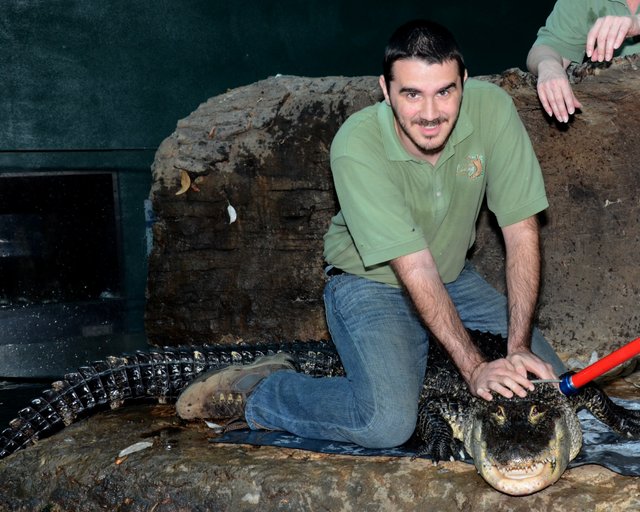
This is not Stella...but I can't resist sharing it anytime I get the opportunity!
Photography Credit to Karl Rebenstorf (Note: Not all the photos are actually Stella. I simply don't have many of her since I'm too focused on working with her to take pictures at the same time!)
Super interesting -- I didn't know alligators were that intelligent!
Downvoting a post can decrease pending rewards and make it less visible. Common reasons:
Submit
It's amazing how much personality and smarts they have! Too bad Stella is one of the most mischievous animals I've ever worked with (even by gator standards)!
Downvoting a post can decrease pending rewards and make it less visible. Common reasons:
Submit
change the story tag to herpetology -- story means fiction and you'll want the herp tag in the future
Downvoting a post can decrease pending rewards and make it less visible. Common reasons:
Submit
It's so dangerous
Downvoting a post can decrease pending rewards and make it less visible. Common reasons:
Submit
Dig a hole and fill it with a hose and an alligator will make an appearance around here lol
Downvoting a post can decrease pending rewards and make it less visible. Common reasons:
Submit
hey hey would love to connect with you. are you on steemit.chat?
Downvoting a post can decrease pending rewards and make it less visible. Common reasons:
Submit
This post has been linked to from another place on Steem.
TRUST YOURSELF: A practical guide to achieving any goal and living beyond fear
BEE Happy: Crowning of a QUEEN.
About linkback_bot
Downvoting a post can decrease pending rewards and make it less visible. Common reasons:
Submit
Reminds me of "Amos Moses" my personal hero and role model.
Downvoting a post can decrease pending rewards and make it less visible. Common reasons:
Submit